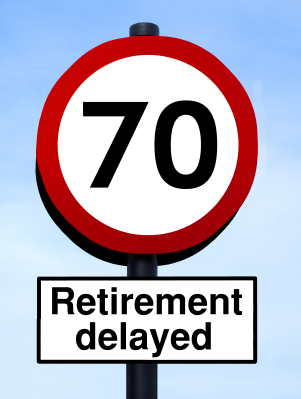
Will Private Equity Inherit Baby Boomer Businesses?
Most people know that baby boomers are a huge generation, with more than 75 million people closing in on retirement. But, did you know that 66% of all businesses with employees, nearly 4 million companies, are owned by baby boomers? While it has been argued that those born between 1946 and 1964 have left the economy worse than they found it, there may be a silver lining for lower and middle market private equity firms.
According to a recent study from MarketPulse, baby boomers may soon become primary dealflow fodder. At the end of 2012, the survey learned, “For the first time, baby boomer retirement was the number one reason driving business sales across all Main Street and the lower middle market sectors.” While the broader tax changes may also be attributable to the record number of sales,the magnitude of the looming demographic shift is hard to ignore.
The trend was not surprising to Benjamin Gerut of Kuzari Group, LLC. He explained, “There has been a lot of conversation around the aging baby boomer generation. It is so widely discussed because it is ultimately a very simple, macro and necessary eventuality of the demographic cycle.”
The retirement of baby boomers is particularly important because of their legacy for business and innovation. “The baby boomer generation (native and immigrant alike) was highly entrepreneurial, creating and nurturing their businesses, and as a generation, growing the number of new domestic businesses substantially,” explained Gerut.
However, what is more important for many private equity firms is what the baby boomers did not leave behind. “[The baby boomers] generally had far fewer children than their parents, and the unavoidable outcome is succession and liquidity challenges later in life,” said Gerut. “It is the solution to both succession and liquidity that these owners are seeking.”
With inheritance out of the question for many of these entrepreneurs, the need for an alternative, meaningful exit is becoming evident. As Gerut explained, “The trend is a very promising one for many private equity groups, and even more, for the baby boomers. As the baby boomers look to retire, many private equity firms will be vying for those assets.”
Since many private equity firms, and other financial and strategic buyers, will be aggressively seeking the vestiges of baby boomer’s entrepreneurship, Gerut believes it will require more than capital to attract the owners. “I really believe that most of these retiring entrepreneurs want more than a simple check; they want a real transition with real mentorship…they want succession. Operating partners at large caps are often seen as less significant to overall investment performance, but in the middle and certainly the lower-market, they are truly the head of the spear.”
He continued, “Buyers must care about the employees. After working with many of these people for years or decades, it is hard for me to imagine an owner being comfortable simply selling to a PEG without any comfort as to the long-term future of the company and its human resources.”
Audrey Smith of Cowen agreed with Gerut’s assessment of business owner sentiments. She has learned, “Most entrepreneurs are looking for partners — someone that can help them grow, not just provide capital. I think many of these owners learned during the recession that having money can’t get you all the way there.”
One of the most important ways to being perceived as a true partner by entrepreneurs is to be branded correctly in the marketplace. Since many entrepreneurs believe private equity is synonymous with Romney’s LBO-ing Bain, how your firm is branded could make all the difference. Join us for our panel discussion in NYC on Thursday to learn more about how private equity firms are branding themselves.
While proper branding and operational experience is critical to capitalizing on the exits of baby boomers, so too is getting the timing right. If you mistime a cycle, it could mean exorbitant valuations or cautious sellers. “There will definitely be a bell curve of retirements, but while difficult to predict, the peak will likely occur over the course of the next 10 to 15 years, which may be extended or compressed depending on the concentration and duration of economic peaks and troughs,” explained Gerut. “Many of these businesses are significantly under-levered and it will be easier for owners to ride out troughs then many distressed buyers might like.”
While Gerut believes the peaks of retirement will correspond closely with economic cycles, “Forecasting the timing and intensity of the trend is rather difficult because it is also function of general life expectancy, the individual business owners’ pride and wherewithal, and economic cycles. Some baby boomers will retire in the next five years (or already have), while others will continue working until they are 85 or 90.”
“We are seeing a big push right now,” explained Gerut. “The recession left many business owners ready to retire, unwilling to go through another economic cycle. Follow that with net profit growth since 2007 and cheap credit, and you have yourself a deal.”
